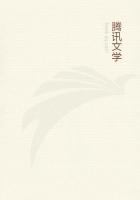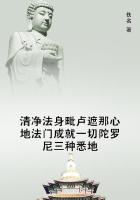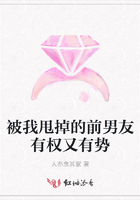"And may frighten you now; though I doubt it. Time has mellowed him. Besides, I have prepared him for what might otherwise occasion him some astonishment. Naturally he would not look for just the sort of lady investigator I am about to introduce to him."She smiled. Violet Strange was a very charming young woman, as well as a keen prober of odd mysteries.
The meeting between herself and Miss Digby was a sympathetic one.
After the first inevitable shock which the latter felt at sight of the beauty and fashionable appearance of the mysterious little being who was to solve her difficulties, her glance, which, under other circumstances, might have lingered unduly upon the piquant features and exquisite dressing of the fairy-like figure before her, passed at once to Violet's eyes, in whose steady depths beamed an intelligence quite at odds with the coquettish dimples which so often misled the casual observer in his estimation of a character singularly subtle and well-poised.
As for the impression she herself made upon Violet, it was the same she made upon everyone. No one could look long at Florence Digby and not recognize the loftiness of her spirit and the generous nature of her impulses. In person she was tall and as she leaned to take Violet's hand, the difference between them brought out the salient points in each, to the great admiration of the one onlooker.
Meantime, for all her interest in the case in hand, Violet could not help casting a hurried look about her, in gratification of the curiosity incited by her entrance into a house signalized from its foundation by such a series of tragic events. The result was disappointing. The walls were plain, the furniture ******.
Nothing suggestive in either, unless it was the fact that nothing was new, nothing modern. As it looked in the days of Burr and Hamilton so it looked to-day, even to the rather startling detail of candles which did duty on every side in place of gas.
As Violet recalled the reason for this, the fascination of the past seized upon her imagination. There was no knowing where this might have carried her, had not the feverish gleam in Miss Digby's eyes warned her that the present held its own excitement.
Instantly, she was all attention and listening with undivided mind to that lady's disclosures.
They were brief and to the following effect:
The dinner which had brought some half-dozen people together in this house had been given in celebration of her impending marriage. But it was also in a way meant as a compliment to one of the other guests, a Mr. Spielhagen, who, during the week, had succeeded in demonstrating to a few experts the value of a discovery he had made which would transform a great industry.
In speaking of this discovery, Miss Digby did not go into particulars, the whole matter being far beyond her understanding;but in stating its value she openly acknowledged that it was in the line of Mr. Cornell's own work, and one which involved calculations and a formula which, if prematurely disclosed, would invalidate the contract Mr. Spielhagen hoped to make, and thus destroy his present hopes.
Of this formula but two copies existed. One was locked up in a safe deposit vault in Boston, the other he had brought into the house on his person, and it was the latter which was now missing, having been abstracted during the evening from a manuscript of sixteen or more sheets, under circumstances which she would now endeavour to relate.
Mr. Van Broecklyn, their host, had in his melancholy life but one interest which could be at all absorbing. This was for explosives. As consequence, much of the talk at the dinner-table had been on Mr. Spielhagen's discovery, and possible changes it might introduce into this especial industry. As these, worked out from a formula kept secret from the trade, could not but affect greatly Mr. Cornell's interests, she found herself listening intently, when Mr. Van Broecklyn, with an apology for his interference, ventured to remark that if Mr. Spielhagen had made a valuable discovery in this line, so had he, and one which he had substantiated by many experiments. It was not a marketable one, such as Mr. Spielhagen's was, but in his work upon the same, and in the tests which he had been led to make, he had discovered certain instances he would gladly name, which demanded exceptional procedure to be successful. If Mr. Spielhagen's method did not allow for these exceptions, nor make suitable provision for them, then Mr. Spielhagen's method would fail more times than it would succeed. Did it so allow and so provide? It would relieve him greatly to learn that it did.
The answer came quickly. Yes, it did. But later and after some further conversation, Mr. Spielhagen's confidence seemed to wane, and before they left the dinner-table, he openly declared his intention of looking over his manuscript again that very night, in order to be sure that the formula therein contained duly covered all the exceptions mentioned by Mr. Van Broecklyn.
If Mr. Cornell's countenance showed any change at this moment, she for one had not noticed it; but the bitterness with which he remarked upon the other's good fortune in having discovered this formula of whose entire success he had no doubt, was apparent to everybody, and naturally gave point to the circumstances which a short time afterward associated him with the disappearance of the same.
The ladies (there were two others besides herself) having withdrawn in a body to the music-room, the gentlemen all proceeded to the library to smoke. Here, conversation loosed from the one topic which had hitherto engrossed it, was proceeding briskly, when Mr. Spielhagen, with nervous gesture, impulsively looked about him and said:














